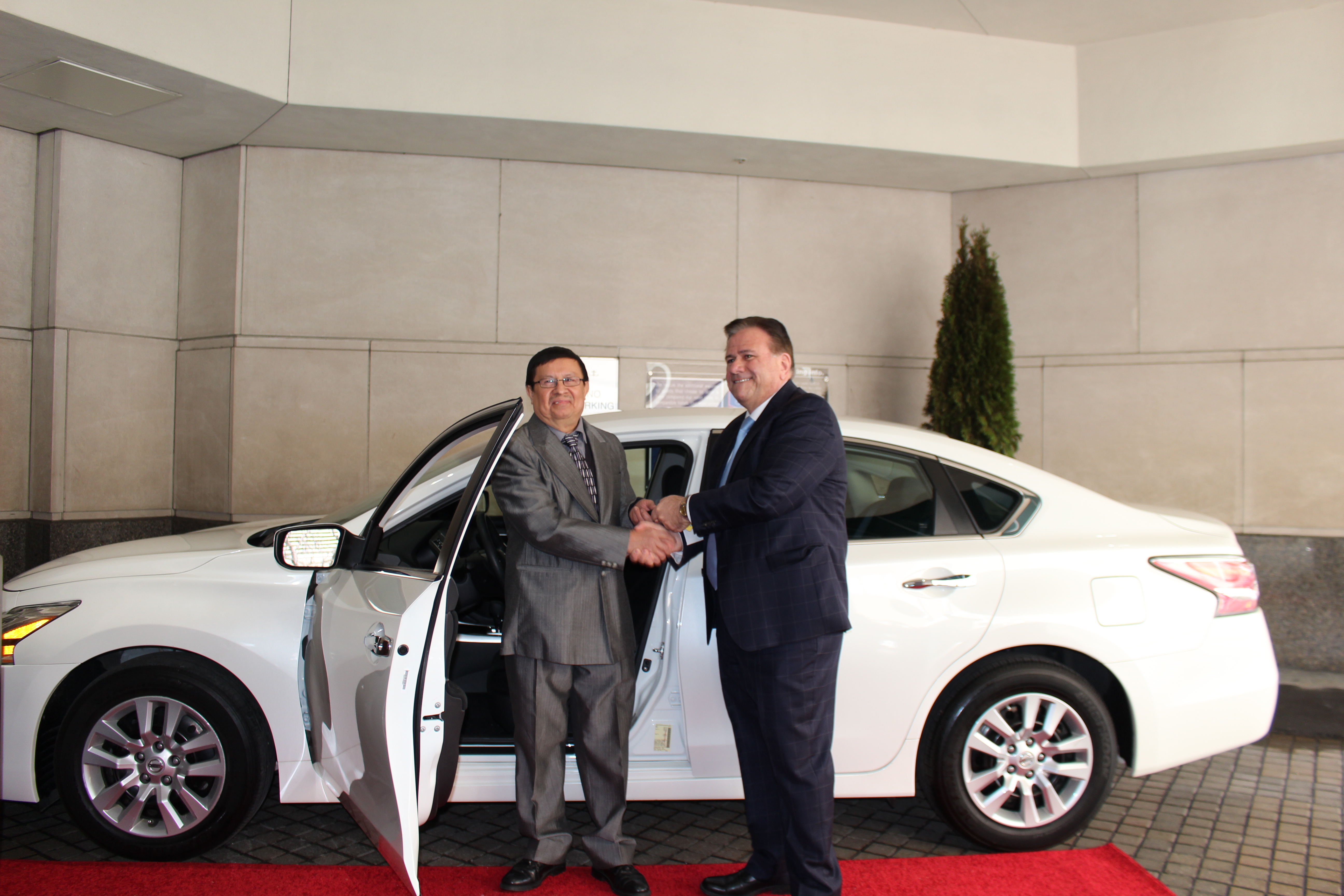For Robert Habeeb, bigger isn’t always better. It’s a mantra that has proven true in his life time and time again. The first time it rang true was in 1997 when Habeeb decided to step away from London’s Rank Group, a vast multinational company with a significant level of holdings the world over, which he joined in 1992. It happened again as he worked to construct the focus of management company First Hospitality Group into a number of key Midwestern states. Now, as president and CEO of FHG, Habeeb is seeking to minimize once again, and is looking to get back into the personal aspect of hospitality by setting foot in the company's properties more often to interact with his team.
“My best day at work is when I’m out at the hotels,” Habeeb said. “I love the human interaction. When you see the great people who work for you, and who you work for, taking care of your guest, it’s a great source of pride for me knowing as many of them as I do by name. A lot of important things happen at the home office, but you have to see where your business meets your guest.”
Habeeb says he finds kinship in the hospitality industry because of its abundance of “accidental hoteliers” like himself. While he initially began working in the food-and-beverage industry to pay for his education, Habeeb had dreams of becoming a lawyer before he found a passion for hospitality.
Habeeb said the decision to leave his position as COO of the Rank Group to join First Hospitality Group was motivated by the desire to make decisions and act quickly, something that is often stifled at larger corporations.
“I found my personality was best for a small company,” he said. “I found I couldn’t make as big a difference as profoundly as I wanted. At a small company I can make mistakes and learn from them, which I like very much.”
Shrinking Down, Thinking Big
In 2000, three years after joining FHG, the company made the decision to narrow the scope of its portfolio, focusing on what Habeeb described as “ever-concentric circles forming around Chicago.” FHG saw synergies in developing and managing around the markets connected to Chicago, and since then the strategy has proven to be successful. With those “concentric circles” growing ever larger, FHG is currently active in nine states and Habeeb said it shouldn’t be a surprise if the company decides to expand.
“We learned these markets intimately, became members of the community, so we have a disciplined footprint and can drive results better than many of our competition,” Habeeb said.
On the subject of Chicago, earlier this year Habeeb had several misgivings about the strength of the market in the face of record incoming supply. But since then he has been pleasantly surprised by the strength of the city’s demand generation.
“Demand has held up better than anticipated, which is very promising, but there is a lot of product coming to Chicago,” he said. “We are absorbing it reasonably, but next year we may find we are either at equilibrium or supply will have outstripped demand.”

FHG is at least partly responsible for some of Chicago’s incoming supply, including a triple-branded property located near the sprawling McCormick Place convention center. The triple-branded concept is one that is new to Hilton, and will consist of a Hilton Garden Inn, Hampton Inn by Hilton and Home2 Suites by Hilton. The project will add a combined 466 guestrooms to the city.
In a world where operators are fighting to appear unique, bespoke and trendy, Habeeb said brands still have all the power, which is why FHG chose to take an equity stake in the triple-branded concept, entering into a joint venture to get the property off the ground.
“The brands have embraced the independent experience, and we are a big fan of soft brands,” Habeeb said. And it’s not all talk: FHG has its hand in the development of a Curio Collection by Hilton hotel in downtown Chicago, as well as a completed Autograph Hotel by Marriott in Columbus, Ohio.
Unity and Hospitality
One area Habeeb said brands today are lacking in, however, is the desire to unite against online travel agencies. With just two companies in control of 95 percent of the industry’s distribution, Habeeb is surprised to see hotels less willing to fight to regain control of the hotel industry.
“I don’t think we are doing enough; we have to take ownership of the industry,” he said. “This is not good for us in the long term, and it’s not in consumers' best interest for OTAs to have the inventory they have, either. The industry has to do more to differentiate the experience of buying direct.”
Looking back on when he joined the industry, Habeeb is frequently surprised to see that hotels have grown to become the global force they are today. “Hospitality has come into its own,” he said. “When I was a young man, it was not looked on as the broad-based industry that it is today. We had a lot of frequency but we weren’t a key driver of the U.S. economy.”
Currently, Habeeb splits his time between FHG and teaching graduate classes at Roosevelt University in Chicago, where he mentors students and sometimes is treated to successful reunions years later.
“The impact you make on people’s lives and careers in the long term, that’s why I do what I do,” Habeeb said. “I get to look back at people I taught or mentored and see many who launched their own careers and are climbing through the ranks. I feel personally accomplished by that, even if it’s a small part in people’s lives. I hope there are people I met along the way steering the industry I love into the future.”
